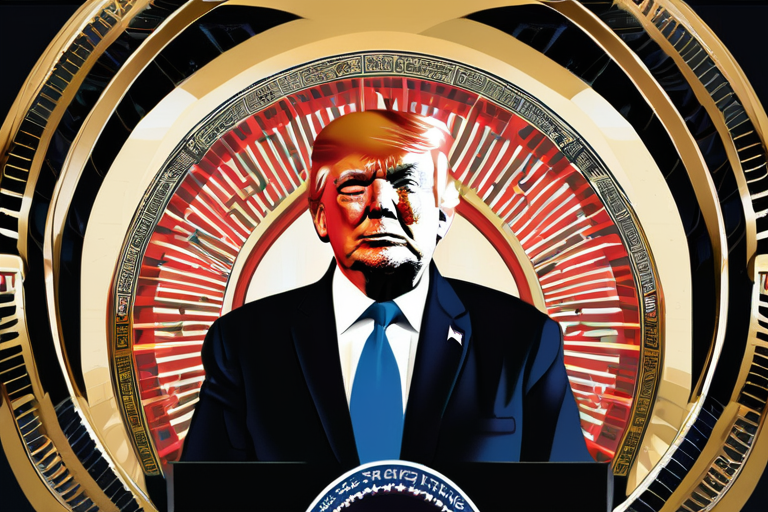The Apocalyptic Visionary: Laszlo Krasznahorkai's Nobel Prize Win
In a world where the boundaries between reality and fiction are increasingly blurred, Hungarian author Laszlo Krasznahorkai has long been a master of crafting dystopian tales that eerily mirror our own. His novels, with their haunting descriptions of desolate landscapes and crumbling communities, have captivated readers for decades. And now, in a momentous decision, the Swedish Academy has awarded him the Nobel Prize in Literature, cementing his status as one of the most visionary writers of our time.
Krasznahorkai's win is not just a recognition of his literary genius but also a testament to the power of art to capture the essence of human experience. His work, which often explores the darker aspects of life, has been hailed for its "compelling and visionary oeuvre" that "reaffirms the power of art." Mats Malm, the Academy's permanent secretary, noted that Krasznahorkai's writing is a reminder that even in the midst of apocalyptic terror, there is still beauty to be found.
Born in 1954 in Gyula, Hungary, Krasznahorkai grew up in a country ruled by communism. His early life was marked by the strictures of a totalitarian regime, which would later influence his writing. After studying literature at the University of Budapest, he left for West Berlin on a DAAD fellowship in 1987, where he began to develop his unique style. His debut novel, Satantango, published in 1985, was an instant success and established him as one of Hungary's most celebrated writers.
Krasznahorkai's writing is characterized by its postmodern sensibilities and a preoccupation with the human condition. His novels often explore themes of alienation, disillusionment, and the search for meaning in a seemingly meaningless world. His use of language is deliberate and evocative, conjuring up images of desolate landscapes, crumbling communities, and the fragility of human existence.
The author's own life has been marked by periods of travel and exile. After the fall of communism, he traveled extensively in China, which inspired his acclaimed travel memoir Destruction a. This experience had a profound impact on his writing, as he began to explore new themes and styles that reflected his growing disillusionment with the world around him.
Krasznahorkai's win has been hailed by critics and writers alike. "He is a true original," said one prominent literary critic. "His work is like nothing else out there – a unique blend of philosophy, poetry, and storytelling." Another writer noted that Krasznahorkai's writing is "a reflection of our times – dark, complex, and deeply unsettling."
The implications of Krasznahorkai's win are far-reaching. His Nobel Prize is not just a recognition of his individual achievement but also a testament to the power of literature to capture the essence of human experience. In an era marked by increasing polarization and division, his work serves as a reminder that art has the ability to transcend borders, cultures, and ideologies.
As we reflect on Krasznahorkai's remarkable career, we are reminded of the enduring power of literature to shape our understanding of the world around us. His Nobel Prize win is a testament to the transformative potential of art to capture the human condition in all its complexity and beauty.
The Legacy of Laszlo Krasznahorkai
Krasznahorkai's work has been adapted into numerous films, including Satantango and The Melancholy of Resistance. His novels have been translated into over 20 languages and have sold millions of copies worldwide. He is widely regarded as one of the most important writers of his generation.
In a world where the boundaries between reality and fiction are increasingly blurred, Krasznahorkai's work serves as a reminder that art has the power to capture the essence of human experience. His Nobel Prize win is a testament to the enduring power of literature to shape our understanding of the world around us.
The Future of Literary Fiction
Krasznahorkai's win raises important questions about the future of literary fiction. As we navigate an increasingly complex and uncertain world, what role will literature play in shaping our understanding of human experience? Will authors like Krasznahorkai continue to push the boundaries of language and form, or will they retreat into more conventional styles?
The answer lies in the work itself. Krasznahorkai's writing is a testament to the power of art to capture the essence of human experience. His Nobel Prize win is a reminder that literature has the ability to transcend borders, cultures, and ideologies.
As we look to the future, one thing is clear: Laszlo Krasznahorkai's work will continue to inspire and challenge readers for generations to come.
*Based on reporting by Dw.*



 Hoppi
Hoppi

 Hoppi
Hoppi

 Hoppi
Hoppi

 Hoppi
Hoppi

 Hoppi
Hoppi

 Hoppi
Hoppi











